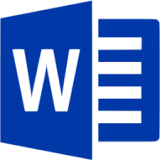The Feasibility Analysis of Mathematics Textbook Material based on Bell's Criteria
Abstract
The purpose of this study is to determine the feasibility of Mathematics textbook material for Grade VII 1st semester on 2017 Revised Edition based on Bell's criteria. So that if there is an error, it can be fixed. Then, this type of research is descriptive research. In the descriptive analysis, there is no need to find or explain its relationships and test hypotheses. The approach used is qualitative. Moreover, this study uses a qualitative approach because the data collected are described in sentences. This study will be obtained from two sources, namely the main source of the Mathematics Textbook Grade VII of 2013 curriculum and peer-discussion support sources. The method used in this research is the documentation method. The documentation data used in this research is the textbook itself. However, the data obtained by using the Analysis Instrument Result shows that the suitability of the mathematics textbook material of Grade VII with the material based on Bell's criteria for the numbers and algebra chapters includes a good category. Meanwhile, the sets and equations and linear inequalities of one variable chapter belong to be an excellent category. The average suitability of the mathematics material from each chapter in the textbook toward Bell's criteria is 83.75% and is supported by the validity data results through forms and peer discussions. As a result, the feasibility of the mathematics textbook material for grade VII of the 2017 revised edition based on Bell's criteria is very good.
Keywords
Full Text:
PDFReferences
Hanafy, M. S. (2014). Konsep Belajar dan Pembelajaran. Lentera Pendidikan, Vol.17(1):66-67.
Hardani, d. (2020). Metode Penelitian Kualitatif & Kuantitatif. Yogyakarta: Pustaka Ilmu.
Hidayat, D. R. (2007). Ilmu dan Aplikasi Pendidikan (Bagian 3 Pendidikan Disiplin Ilmu). Bandung: PT. Imperial Bhakti Utama.
Lutviana, I. (2017). Analisis Kelayakan Materi Buku Matematika Kurikulum 2013 Edisi Revisi 2016 Kelas VII Bab Segiempat dan Segitiga Berdasarkan Kriteria Bell. Skripsi tidak diterbitkan, 12.
Melissa, M. (2015). Analisis Buku Siswa Matematika Kelas VIII Semester 1 Berdasarkan Kriteria Bell. Skripsi Tidak Diterbitkan, 1-2.
Moleong, L. J. (2017). Metodologi Penelitian Kualitatif. Bandung: PT. Remaja Rosdakarya.
Mudzakir. (2003). Penulisan Buku Teks Bahasa Arab. Seminar Nasional Pengajaran Bahasa Arab (p. 3). Bandung: Program Pendidikan Bahasa Arab JPBA FPBS UPI.
Mujiati, H. ( 2014). Analisis dan Perancangan Sistem Informasi Stok Obat pada Apotek Arjowinangun. Speed Journal, Vol.11(2):24-25.
Muljono, P. (2007, Januari 1). Kapal Itu Bernama UN. Buletin BNSP, p. 20.
Rahmawati, G. (2015). Buku Teks Pelajaran Sebagai Sumber Belajar Siswa di Perpustakaan Sekolah di SMAN 3 Bandung. EduLib, 5(1):106-107.
Rahmawati, G. (2015). Buku Teks Pelajaran Sebagai Sumber Belajar Siswa di Perpustakaan Sekolah di SMAN 3 Bandung. EduLib, 5(1):106-107.
Rasimin, R. ( 2019). Metodologi Penelitian: Pendekatan Praktis Kualitatif. Yogyakarta: Trussmedia Grafika.
Satrianawati. (2018). Media dan Sumber Belajar. Yogyakarta: Deepublish.
Siagian, M. D. (2016). Kemampuan Koneksi Matematik dalam Pembelajaran Matematika. MES (Journal of Mathematics Education and Science), Vol.2(1):59-60.
Sugiyono. (2018). Metode Penelitian Kombinasi (Mixed Methods). Bandung: Alfabeta, cv.
Susilana, R. (2007). Ilmu dan Aplikasi Pendidikan (Bagian 2 Pendidikan Disiplin Ilmu). Bandung: PT. Imperial Bhakti Utama.
Winarso, W. (2015). Dasar Pengembangan Kurikulum Sekolah. Cirebon: CV. Confident.
Zaman, B. ( 2013). Peningkatan Hasil Belajar Mata Pelajaran Fiqih melalui Penerapan Metode CTL dan Pemberian Motivasi Belajar pada Siswa Kelas VII A MTs Negeri Teras. Boyolali : Tesis: Pascasarjana UMS.
Zaman, B. (2020). Penerapan Active Learning dalam Pembelajaran PAI. Jurnal As-Salam , 4 (1), 13-27.
DOI: https://doi.org/10.18326/hipotenusa.v3i1.5227
Refbacks
- There are currently no refbacks.
Copyright (c) 2021 Mahendra Wisnu Wardana

This work is licensed under a Creative Commons Attribution-ShareAlike 4.0 International License.

This work is licensed under a Creative Commons Attribution-ShareAlike 4.0 International License.





